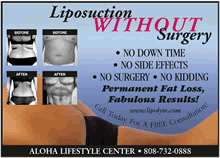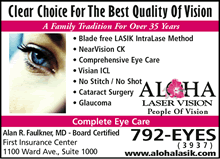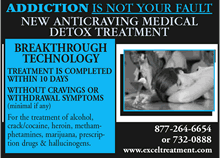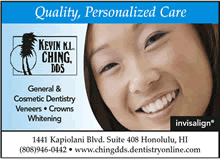Is Tooth Whitening Safe?
Wednesday - April 30, 2008

By Kevin K.L. Ching, DDS
Hundreds of teeth whitening products are available in the form of whitening gels, toothpaste, rinses, and strips. Which product works the best, and is it safe? Studies in teeth whitening began years ago, when people noticed that using a peroxide rinse to fight gum disease also lightened their teeth. The change took years to notice and it was very subtle. One of the first methods used by dentists began with a gel and tray that accelerated the chemical process to produce quicker results. When the procedure was first introduced to the public, teeth whitening was only available by a dentist. As the demand and popularity for teeth whitening became evident, dental product manufacturers started developing alternatives to dental treatments with gels, toothpastes, rinses and strips.
However, when using over the counter products, you risk the chance of ending up with unwanted results. Only your dentist can provide you with proper supervision and materials to safely whiten teeth and produce predictable results. Then, under the careful scrutiny by a dental professional, the process can be modified to achieve the best whitening results, while minimizing side effects.

Your dentist can offer professional advice on the risk and benefits of teeth whitening. An example of a negative effect of teeth whitening is the appearance of a darkening crown as the whitening process is underway. While the crown isn’t really changing color, it will seem darker in comparison to the rest of your natural teeth. When using an over the counter whitening kit, you are on your own, and there is no way to know if it will work for you. You could potentially spend a lot of money buying product after product, only to be disappointed in the end. Bad results can occur because you may not be aware of the special conditions that apply to your teeth and gums. Procedures and materials used in the dentist’s office have been extensively researched for safety and effectiveness, whereas products carried in your retail store, may not have been. If claims such as: “Just like what you can get at the dentist…” are made on the product, you should demand an explanation about how that statement can be true. Does the product have the research to back their claims or is it just another empty promise? If you choose to whiten your teeth on your own, notify your dentist especially if you are planning to do some dental work in the near future. Your dentist will need to plan for future procedures to possibly correct some of the effects of unsupervised bleaching.
Teeth whitening can be a welcomed life changing experience. If your teeth have become darker and yellow over the years, for a relatively small investment, this procedure can give you the confidence and attractive smile you’ve always wanted. Other situations, such as tooth banding and antibiotic staining might limit whitening results but you will still see noticeable improvement. Your dentist is the most qualified person to determine what whitening regimen will be the safest and most effective for your teeth. To answer the question, “Is tooth whitening safe?” the answer is yes, and it’s most effective with careful supervision from your dentist.
For further information on teeth whitening and other concerns, contact your dentist or call Dr. Ching at 946-0442.
E-mail this story | Print this page | Comments (0) | Archive
Most Recent Comment(s):



















